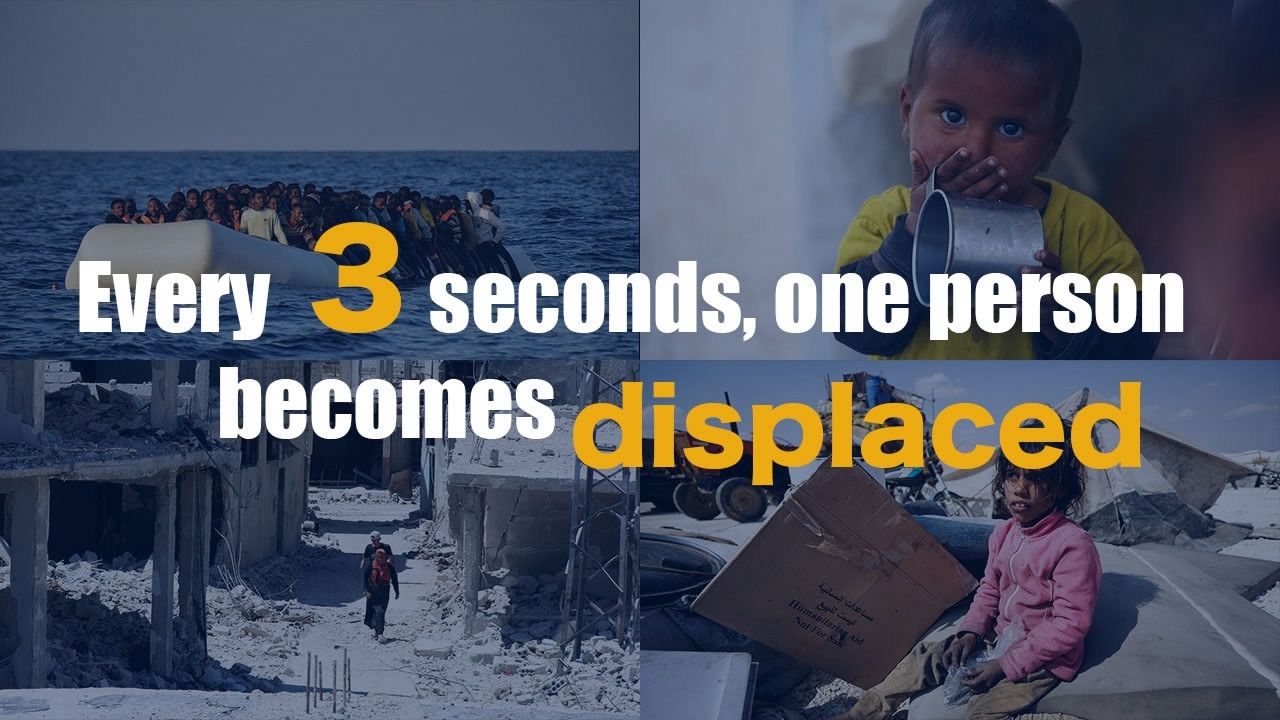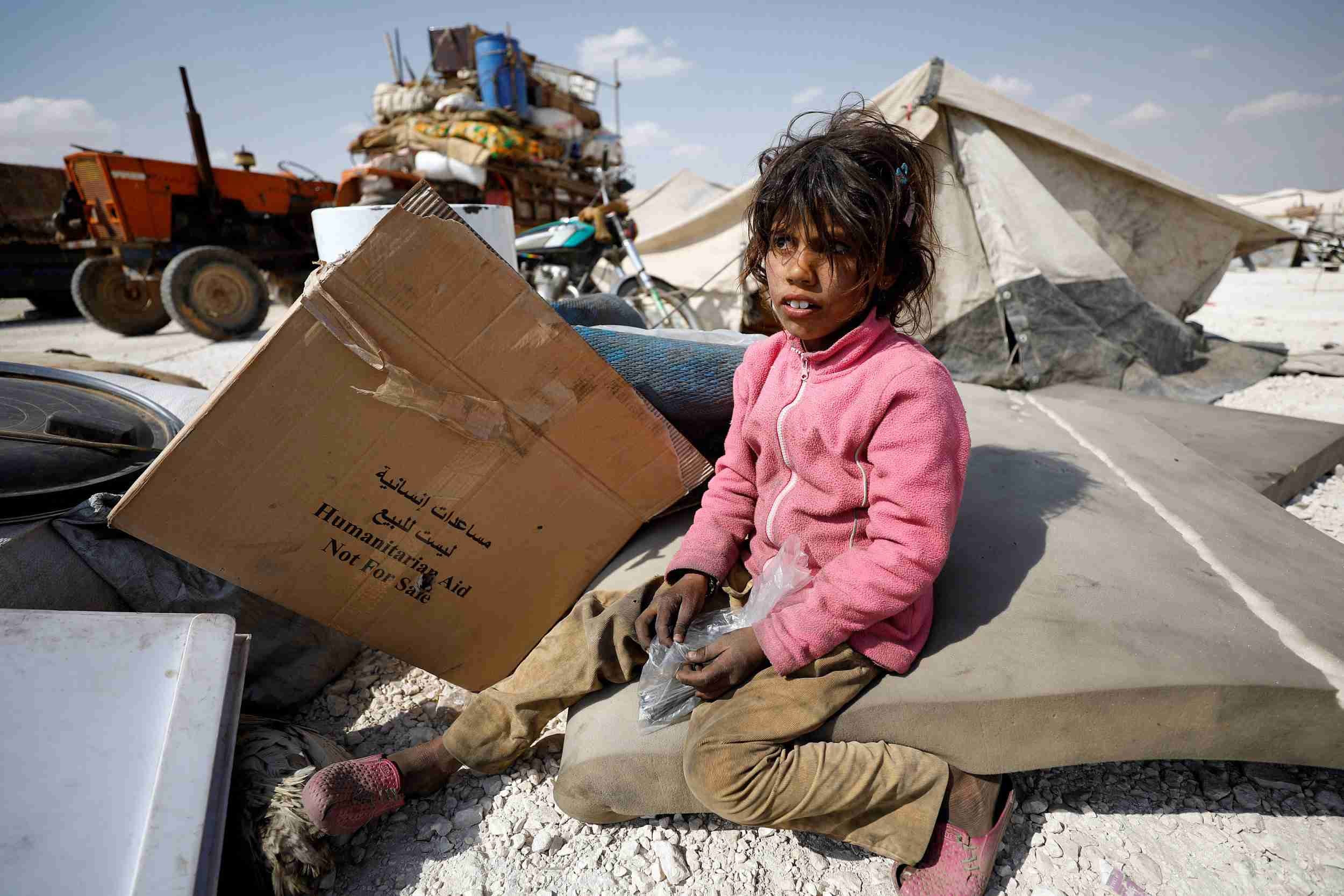The amount of people displaced by conflicts, violence, and persecution around the world has reached 65.6 million, marking a jump of 300,000 compared with last year, according to a report published a day ahead of World Refugee Day on June 20 by the UN refugee agency.
On average, one out of every 113 people worldwide is displaced. "This equates to one person becoming displaced every three seconds, less than the time it takes to read this sentence," UN High Commissioner for Refugees (UNHCR) Filippo Grandi pointed out in a statement.
Grandi pointed out that it is an "unacceptable number" which "speaks louder than ever to the need for solidarity and common purpose in preventing and resolving crisis."

CGTN Photo
Among those 65.6 million people, 22.5 million are refugees, and another 40.3 million are displaced inside their own countries. The rest are global asylum seekers.
According to the UN report, half of the 22.5 million registered refugees are children. In 2015, an image of Alan Kurdi, a two-year-old boy who was the drowned in the Mediterranean Sea and washed ashore, shocked the whole world and sparked an international outcry.
Alan was only one of the tragedies that continue to occur at the sea. According to a UNHCR report at the end of 2016, more than 5,000 refugees are believed to have drowned during the year, a record figure which they described as "a devastating milestone."

An internally displaced girl who fled Raqqa city sits inside a camp in Raqqa Governorate, Syria May 4, 2017. /VCG Photo
On Monday, the same day the UN's report of its annual Global Trends report on displaced people, 126 refugees were reported to have drowned in the Mediterranean Sea, and most of them were South Sudanese.
Meanwhile, Syria remains the country which has the largest number of refugees in the world, with 5.5 million people now living outside the country. In 2016, South Sudan has seen an increase in its refugee population due to the disastrous breakdown of peace efforts.
The refugees from Syria, South Sudan, and Afghanistan have made up 55 percent of the world's displaced population. Syria, Iraq, and Colombia were the biggest internal displacement situations, nonetheless the problem of internal displacement is a worldwide one and accounts for almost two-thirds of the global forced displacement total, the report said.

CGTN Photo
However, there are also prospects of improvement in 2016, in terms of returns of refugees and internally displaced people to their homes, combined with other solutions such as resettlement in third countries.
According to the report, some 37 countries together accepted 189,300 refugees for resettlement. Around half a million other refugees were able to return to their home countries, and about 6.5 million internally displaced people to their areas of origin.
The Global Trends report was a statistical assessment of forced displacement prepared by UNHCR annually based on its own data, which it receives from its partner the Internal Displacement Monitoring Centre, and from governments.







